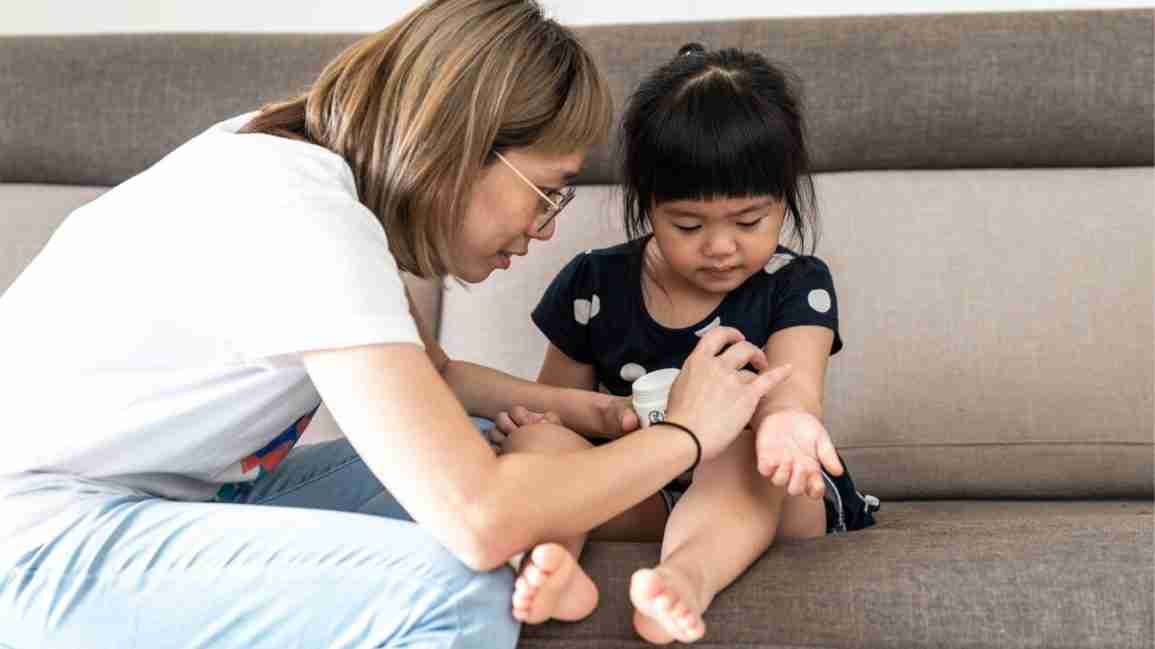When you’re spending time outdoors during the warmer months, coming home with an itchy welt or two might just feel like par for the course. Symptoms usually disappear after a couple of days. But in some instances, mosquito bites leave a more permanent reminder behind: tiny, pinhole-shaped scars.
This article will cover scarring from mosquito bites — why it happens, how to prevent it, and how to treat these scars when they’ve already started to become visible.
Mosquitos cause more insect bites than any other bug worldwide. Most of the time, these bites disappear within a week.
Symptoms tend to be the most severe in the hours right after the mosquito bites you. They include:
- itching
- inflammation
- redness
In cases where marks or blemishes on your skin linger after that, the three most likely reasons are:
- inflammation
- infection
- allergies
Post-inflammatory hyperpigmentation
After the symptoms of the initial bite subside, you may notice a circular dark spot where the bite occurred. This is called post-inflammatory hyperpigmentation.
Post-inflammatory hyperpigmentation can also result from acne. These types of blemishes tend to fade slowly over several months, and certain home remedies might help them become less visible.
Infection from scratching
Sometimes mosquito bites can become infected during the healing process. Scratching the bite and then opening the scab can increase the chances of this.
If you interrupt the healing process by scratching, and that scratching destroys new skin growing underneath a scab, scars and infection become more likely.
An infected mosquito bite will become inflamed and may have a yellow or green discharge. After the infection is gone, it can leave a permanent scar.
Keloid scarring
Some people are just more prone to scarring when they have mosquito bites (or anything else that breaks the top skin layer). These scars, called keloid scars, can become larger than your original mosquito bite wound.
A keloid scar is a raised deposit of collagen that occurs during healing. It’s usually permanent.
Mosquito bite allergies
It’s possible to be allergic to mosquito bites. Symptoms of a mosquito bite allergy include:
- hives or lesions
- unusually excessive itching
- bruises near the bite
- difficulty breathing
- fever
- anaphylaxis
If you’re moderately or severely allergic to mosquito bites, your risk of blistering, redness, and lingering inflammation increases — which also increases the risk of scarring.
Treat with aloe
Aloe promotes healing after your skin has been compromised by a burn, cut, or insect bite wound. Applying aloe to the site of your bite can help your skin heal.
Exfoliate the area
After the initial scab has fallen off, you can begin to exfoliate the area of the bite to lower your risk of scarring and encourage a layer of healthy new skin cells.
Use an exfoliating skin scrub or gentle exfoliating brush, like a sea sponge, over the bite whenever you shower.
Try OTC anti-scarring products
An over-the-counter (OTC) scar cream can help encourage skin healing. Apply these products to the mosquito bite as soon as you’re able to, and continue daily application until the blemish is fully healed.
Massage to promote blood flow
Some people swear by regularly massaging the area of a mosquito bite in order to promote blood flow to the area. Increased circulation may be able to encourage healthy collagen production, which would make scars less likely to appear.
Moisturize with shea butter or coconut oil
Keeping the area moisturized is critical during the healing process. You can safely use natural moisturizers with no added ingredients on the mosquito bite as the scab starts to fall off.
Shea butter and coconut oil are proven to lock moisture into your skin without interrupting its natural healing processes.
Apply antibacterial ointments nightly
Treating your mosquito bite with bacitracin or another antibacterial ointment every night before bed will reduce your chance of infection, which will in turn lower the risk of your bite turning into a scar.
Use anti-itch cream to prevent scratching
An antihistamine or hydrocortisone cream that cuts down on itching can help your mosquito bites heal more quickly, making scars less likely to form.
Sooth inflammation with calamine lotion
Soothing calamine lotion can be used to reduce inflammation and calm your itchy skin following the initial bite.
Scar cream and regular massage to the area
Scar cream and regular massage to the area of your mosquito bite may help make old scars less visible. How well these home remedies work will vary depending on:
- your skin type
- the severity of the scars
- how regularly you use the treatments
Chemical peels and microdermabrasion
Chemical peels and microdermabrasion are clinical options that a dermatologist may recommend to help heal scars. These methods can be costly, though, and aren’t guaranteed to work.
Keep in mind that over time, scars from a mosquito bite will continue to fade and become less noticeable.
If you find that you’re prone to scarring easily, you may want to consult with a dermatologist. They can give you tips on scar removal and scar treatment, as well as prevention strategies.
Not everyone gets scars from mosquito bites. If you’re prone to scarring or have a mosquito allergy, you may be more at risk for permanent blemishes as the result of insect bites.
If you’re concerned about scarring from mosquito bites, speaking with a dermatologist is your best bet for treatment options. In the meantime, home remedies for mosquito bites can help prevent infections, control symptoms, and reduce the appearance of scars.

